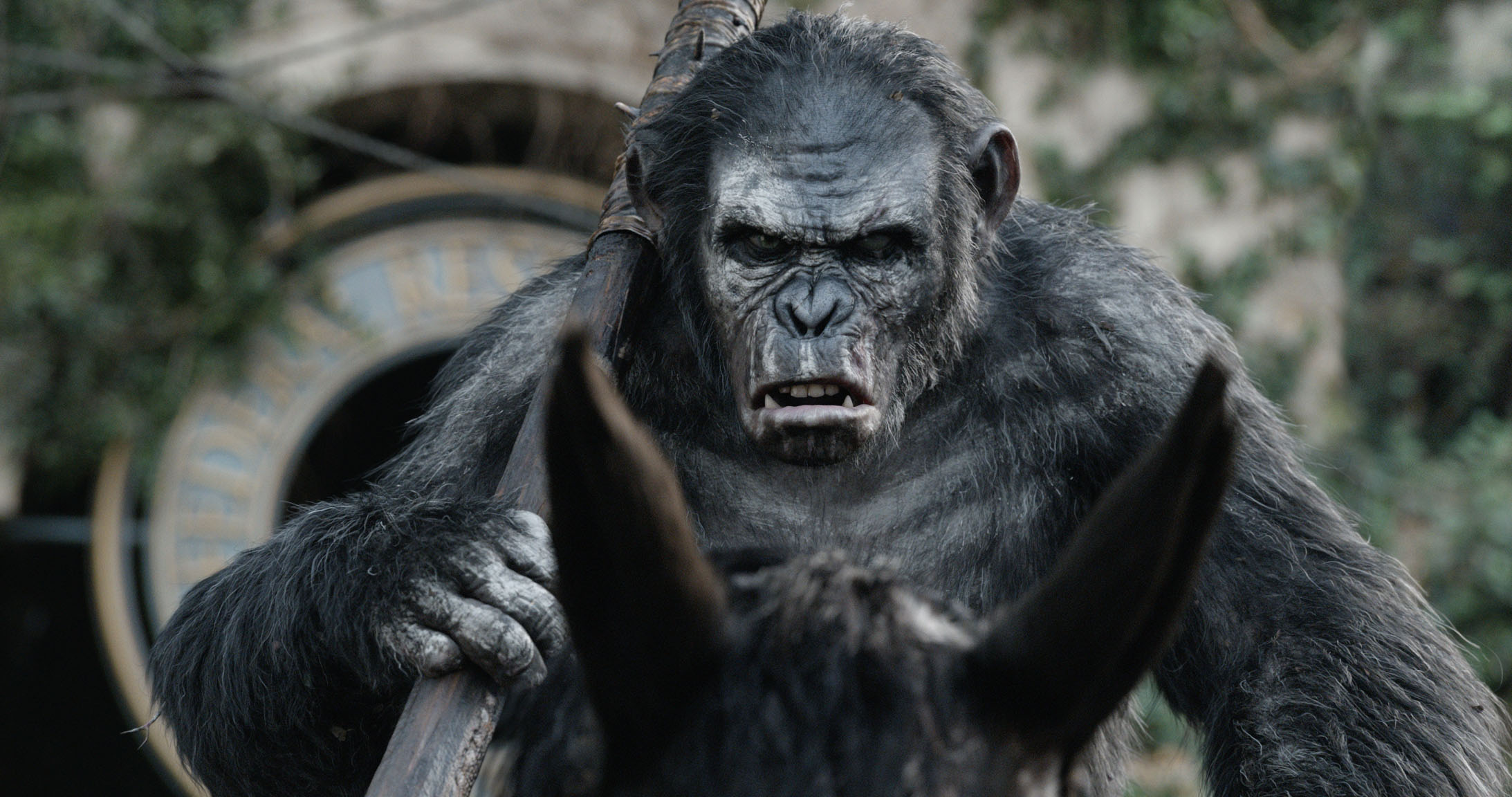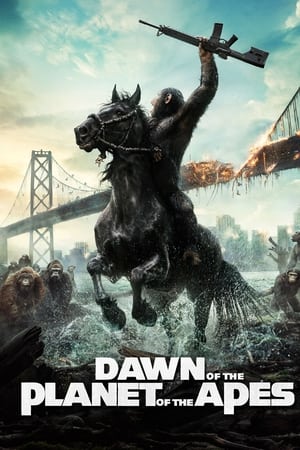An Introspective Look at Matt Reeves’ Impact on the Franchise
Franklin J. Schaffner’s 1968 adaptation of Pierre Boulle’s novel “Planet of the Apes” has endured the test of time with its exploration of themes such as racial issues, evolution, animal rights, and the consequences of war. Hollywood saw the potential in this original and timeless story, leading to numerous sequels and reboots. While Tim Burton’s take on the franchise fell short, the rebooted series began its ascendency with Rupert Wyatt’s “Rise of the Planet of the Apes,” which grounded the story in a more realistic and relatable setting.
A Devastating Post-Apocalyptic Setting
Ten years after the events of “Rise,” we are reintroduced to a bleak and devastated world in “Dawn of the Planet of the Apes.” The human population has been decimated by a deadly virus, leaving a small group struggling to survive in San Francisco. These survivors face the challenge of restoring power to their city to maintain a connection with the outside world. However, this means venturing into the territory of Caesar’s community of intelligent apes, leading to a clash between the two groups.
The opening montage of “Dawn” strikes a chord with audiences, mirroring our own experiences during the ongoing global pandemic. As we witness the collapse of humanity, the film sets a haunting tone that carries through its entirety. Director Matt Reeves portrays Caesar as a complex and introspective character, torn between his loyalty to his ape community and his desire to help the surviving humans. This conflict creates chaos and ultimately results in unintended consequences.
A Reflection of Societal Tensions Through Characters
The coexistence of apes and humans becomes a central theme in “Dawn of the Planet of the Apes.” As Caesar and human protagonist Malcolm navigate their respective roles as leaders, their relationship becomes the emotional anchor of the film. Both characters strive for peace, but they are met with resentment and blame from their own factions. The film paints a nuanced picture of the complexities of war and discrimination, exploring the idea that both sides are capable of good and evil.
The character of Koba, originally an ally of Caesar, develops into the film’s primary antagonist. He represents the destructive nature of hatred and the loss of perspective. Koba’s descent into madness blinds him to the importance of peace and leads him to betray Caesar, setting the stage for a climactic showdown between the apes and humans.
Matt Reeves’ Unique Vision
Director Matt Reeves brings tension and emotional depth to “Dawn of the Planet of the Apes.” He prioritizes character development over spectacle, creating a captivating narrative within the confines of a PG-13 blockbuster. Reeves expertly weaves together moments of hope and tragedy, allowing glimpses of humanity amidst the chaos. The performances, particularly Andy Serkis’ portrayal of Caesar through motion capture technology, lend authenticity and emotional impact to the film.
The film’s slow-burn approach builds anticipation for the inevitable conflict between the two factions. By focusing on character-driven storytelling, Reeves emphasizes the parallels between humans and apes, reinforcing the notion that understanding and coexistence are possible despite their differences.
A Shakespearean Tragedy and a Glimpse of Hope
“Dawn of the Planet of the Apes” delves into the tragic nature of the war between apes and humans. The climax of the film carries a sense of impending doom, reminiscent of Shakespearean tales. Caesar’s struggle to protect his community and Malcolm’s attempt to save his own people lead to the realization that both sides are flawed. The film leaves a lasting impression of the futility of war and the inherent flaws within humanity.
While “Dawn of the Planet of the Apes” presents a bleak outlook, it also offers a glimmer of hope. The parallel journeys of Caesar’s eldest son, Blue Eyes, and Malcolm’s son, Alexander, exemplify the potential for understanding and harmony. Their experiences teach them that neither group is superior and that coexistence is possible.
The Legacy of Matt Reeves
Matt Reeves has proven himself as a masterful director through his work on “Dawn of the Planet of the Apes.” He seizes the opportunity to reinvent the franchise and explore the themes and ideas introduced by Boulle’s original story. With his ability to craft intimate and thought-provoking stories within the blockbuster genre, Reeves establishes himself as one of the industry’s finest directors.
“Dawn of the Planet of the Apes” serves as a testament to the power of storytelling in cinema. It challenges audiences to reflect on our own world and ourselves, reminding us of the potential consequences of our actions. As we revisit this iconic franchise, it becomes clear that Matt Reeves has left an indelible mark, proving that blockbusters can be both entertaining and intellectually stimulating.
Conclusion
“Dawn of the Planet of the Apes” stands as a masterpiece in modern blockbuster cinema, thanks to the visionary direction of Matt Reeves. With its rich themes, complex characters, and thought-provoking narrative, the film transcends its genre to deliver a compelling and emotionally resonant experience. Through its exploration of war, discrimination, and the capacity for both good and evil, “Dawn of the Planet of the Apes” prompts audiences to reflect on the state of our own society. Matt Reeves’ impact on the franchise showcases his talent as a director and his ability to elevate blockbuster filmmaking. As we continue to explore the story of the rise of the apes in subsequent films, we are reminded of the lasting impact of this exceptional entry in the series.
FAQs (Frequently Asked Questions)
1. Is “Dawn of the Planet of the Apes” a standalone film, or do I need to watch the previous installment?
“Dawn of the Planet of the Apes” is a direct sequel to “Rise of the Planet of the Apes” and continues the story from where the first film left off. While it can be enjoyed on its own, watching “Rise” provides valuable context and character development that enhances the overall viewing experience.
2. How does the film explore the themes of war and discrimination?
“Dawn of the Planet of the Apes” delves deep into the tensions between apes and humans, examining the root causes of conflict and the impact of discrimination. The film portrays the consequences of resentment, misplaced blame, and the struggle for power, offering a nuanced exploration of these themes.
3. What sets Matt Reeves’ direction apart in “Dawn of the Planet of the Apes”?
Matt Reeves brings a unique vision to the film, placing a strong emphasis on character development and emotional storytelling. He creates tension through a slow-burn approach, prioritizing the human experience in a post-apocalyptic world. Reeves’ ability to balance spectacle with depth is a standout aspect of his direction in this film.
4. How does Andy Serkis’ performance elevate the character of Caesar?
Andy Serkis’ performance as Caesar is a tour de force, showcasing the emotional range and depth of a character portrayed through motion capture technology. Serkis’ acting skills shine through as he masterfully conveys Caesar’s inner struggle and growth without relying solely on dialogue. His performance solidifies Caesar as one of the best-written heroes in modern blockbuster cinema.
5. What makes “Dawn of the Planet of the Apes” a thought-provoking film?
“Dawn of the Planet of the Apes” prompts audiences to consider the consequences of our actions, the complexities of war and discrimination, and the potential for hope and coexistence. The film challenges us to reflect on our own world and ourselves, leaving a lasting impact long after the credits roll.


